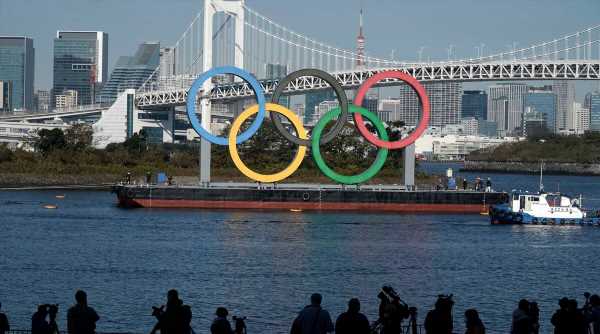A year on, the cultural sensitisation drive has been put on the back burner. Instead, the people in Kurobe are familiarising themselves with pandemic protocols.
Around this time last year, a Japanese city roughly 400 km from Tokyo was preparing to roll out the red carpet for a part of India’s Olympics-bound contingent.
Yoga workshops were being held across the town and food recipes played out on local channels as the residents of Kurobe tried to understand Indian culture before they would host the archery team in the build-up to the Games.
A year on, the cultural sensitisation drive has been put on the back burner. Instead, the people in Kurobe are familiarising themselves with pandemic protocols. “I went there last week for a yoga workshop. People there are anxious about what’s going to happen,” says Randeep Rakwal, a professor at the University of Tsukuba who is also the liaison between Kurobe city officials and India’s sports ministry.
Organisers determined, people worried
On Friday, after The Times reported that Japan was looking to cancel the Olympics because of the pandemic, the country’s government said in a statement that ‘Prime Minister (Yoshihide) Suga has expressed his determination to hold the Games.’
A day earlier, International Olympic Committee (IOC) president Thomas Bach too had said the Games would go ahead as scheduled, from July 23 to August 9.
“We have, at this moment, no reason whatsoever to believe that the Olympic Games in Tokyo will not open on the 23rd of July. This is why there is no Plan B,” Bach told Kyodo News.
But on the ground, the anticipation for the world’s biggest sporting event has made way for anxiety.
“I feel people are more worried now,” Japan’s hockey coach Siegfried Aikman tells The Indian Express from the team’s training base in Kakamigahara. “In the area where we train, there is no Covid. But the increasing cases in Tokyo are a concern for many.”
Rakwal, a Delhi-born Japanese resident, adds that public opinion about the Olympics “was not so good even before the pandemic.” Now, it has worsened. In a poll earlier this month, more than 80 per cent of Tokyo residents said they wanted the Games to be either postponed (44.8 per cent) or cancelled (35.3 per cent).
Safety and monetary issues
The reasons for this are various, according to Rakwal, but primarily because of the health and financial stress caused by the pandemic.
“People wonder how things will be managed if double the number of people land up in Tokyo for a month. Job losses are severe, poverty has increased and come out in the open,” he tells this paper.
The issues extend beyond the Games themselves.
As per Kyodo News, athletes and support staff from roughly 180 countries are to be hosted by approximately 500 municipalities across Japan under the Tokyo Olympics’ host-town initiative.
One of the host towns is Kurobe and there are some underlying apprehensions in the city, a virtual Covid-free zone, about hosting athletes from a country with more than 10 million cases — although the city is still trying to put its best foot forward.
The town officials are working to put in place a plan to create a secure environment for the Indian archers, which has to be submitted next month.
“They are wondering how many PCR tests to conduct on players, what should be their mode of transport, how to monitor them, who will be the people to take care of them… They are trying to prepare to the best of their ability,” Rakwal says.
Public interaction was the most important aspect of the host-town initiative. Indian archers were to visit people at their homes, share meals and meet children during their stay. “That becomes very difficult now,” he says.
Aikman, the Dutch coach of Japan’s hockey team, points to the other issue – preparation leading up to the Olympics.
The Olympics are the end product of a rigorous qualifying system, which has gone haywire because of the pandemic. So far, only four sports – cycling, equestrian, hockey and softball – have completed their qualifying events. For the remaining 29, the timelines have been extended and processes modified. But the prevailing travel restrictions and protocols mean it is still not clear if qualifying for all sports will be completed in time.
And for those who have qualified, like Aikman’s Asian Games champions, there are few opportunities to play matches. Japan has imposed restrictions on teams entering the country and getting clearances to play overseas has become tougher after the emergence of new virus strains.
“We are allowed to practise and there are tournaments being played within Japan. But it is almost a year since we last played an international match,” Aikman says.
Political call
The future of the Tokyo Games, according to Ray Saito from the faculty of culture and sport policy at the Toin University in Yokohama, will also be influenced by the general elections scheduled later this year. The cancellation costs, Saito told The Ticket podcast, would sway public opinion as well.
With Tokyo’s reputation on the line and money at stake for the IOC, the organisers are pressing ahead with the Games, with the only point of contention being whether to allow fans from abroad.
Asahi Shimbun reported on Friday that the organising committee has come up with three options regarding spectator numbers at the venues: no limit, 50 per cent capacity, or no fans at all. The final decision in this regard will be taken by March-end, it said.
Source: Read Full Article


